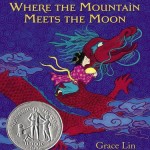Gratitude... 'tis the season, right? I do think it's helpful to have a holiday devoted to giving thanks, even though I aspire to a year-round practice of gratitude.Expressing gratitude, even out of obligation, helps me clearly see the abundance of love, of comforts, and of freedoms that surround me. Research shows that people who regularly express gratitude are happier and healthier than their counterparts, regardless of measurable wealth.
To that end, here are a few books to inspire a gratitude conversation with our children. They also happen to be wonderful stories. Don't forget to scroll down for a few additional recommendations for older readers, plus discussion questions to get you started.
Please share your recommendations in the comments!
The Quiltmaker's Gift by Jeff Brumbeau (Pfeifer-Hamilton).
A very talented seamstress makes beautiful quilts for the poor and the homeless When the king who has everything decides he must have one of her creations, she tells him he must give away everything; then she will give him a quilt. In the process of shedding his many possessions, the king finds true happiness. No summary can do justice to the mesmerizing, fairy-tale quality of this beautiful tale.
The Table Where Rich People Sit by Bryd Baylor ( Aladdin Picture Books).
As her family attempts to calculate the value of the desert hills, the colors of blooming cactus, and the calls of eagles and great horned owls, a young girl discovers that her impoverished family is rich in things that matter in life, especially being outdoors and experiencing nature.
Too Much Noise by Ann McGovern (Sandpiper Books).
Gratitude versus "I want more" is simply a matter of perspective. This exceptionally simple story makes that clear. When the old man searching for silence is told to bring home a variety of barnyard animals, even the youngest child can see the folly in his quest
The Greedy Triangle by Marilyn Burns (Scholastic Bookshelf).
Follow the greedy triangle to learn how wanting more and more and more can change your life in ways you might never expect. And reinforce those basic geometry skills along the way.
The Money Tree by Sarah Stewart (Live Oak Media).
Miss McGillicuddy's simple country routine continues through-out the year in spite of a very unusual tree growing in her yard.
As you read, I invite you to use our discussion questions to help your children consider a sense of gratitude, its importance, and why it can be so evasive:
- Why is it so easy to forget the many things we are grateful for when we discover something new that we desperately want?
- How can we remind ourselves to be satisfied with the good things already in our lives?
- What if we woke up tomorrow and only had the things we expressed gratitude for today?
- What is the difference between what you need and what you want?
- Is it wrong to want something more when you have so much?
- What would you do with a money tree if one appeared on your doorstep?
If you have a little extra time, try one of our related activities. Consider creating a Gratitude Garland or take time to write thank yous to people who have inspired your gratitude.
Independent readers, their parents, and even young ones willing to sit still for chapter books, will fall in love with Where the Mountain Meets the Moon by Grace Lin.







